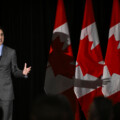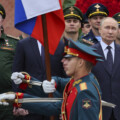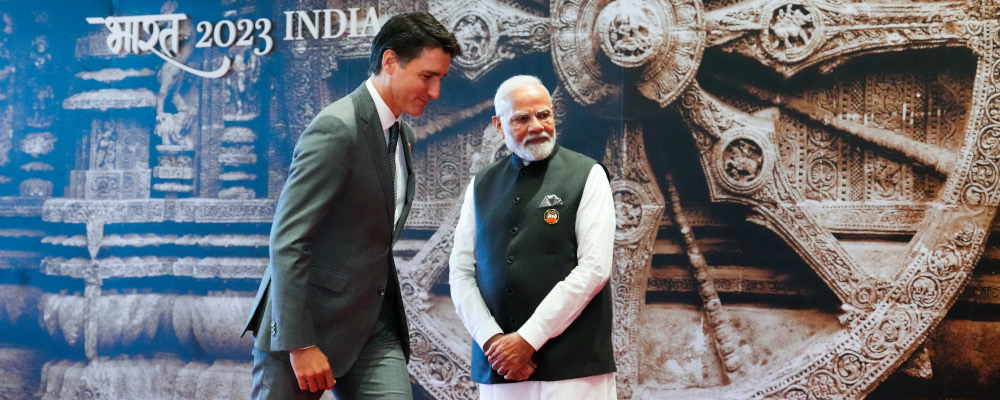The revelations by Prime Minister Justin Trudeau in Parliament on Monday, essentially accusing the Indian government of the assassination of Gudwara leader Hardeep Singh Nijjar, has set off a major foreign policy crisis in Canada.
There are many dimensions of this story that will be explored in the coming days, weeks, and months. They include the actual nature of the intelligence that points to Indian government culpability, Canada’s diplomatic relationship with India (both leading up to and after the assassination), and the operation of its national security services, especially with regard to their unsuccessful attempt to warn Nijjar of the impending danger.
However, one aspect that is already fairly apparent is Canada’s waning diplomatic clout internationally. The response by our allies has been a far cry from forceful support. While this may have come as a shock to some, it is a culmination of several threads in Canadian foreign policy that have been discussed in this column over the past year.
What is not fully evident at this time is the explicit reasoning behind the partners’ refusal to fully endorse Canada’s position. Still, several potential motives for their reticence are apparent. It could be that they are not convinced by the evidence and may be waiting for more information to emerge before making more full-throated statements. Relatedly, the Five Eyes group may also wish to avoid politicizing potentially sensitive intelligence in this fashion. It is impossible to know, in part because the nature of the intelligence that led to the assessment remains classified at this time. However, given that Nijjar was reportedly given warning about his safety by national security officials, it suggests there is fairly mature intelligence concerning the threats to his security.
There are potentially broader factors at work in this regard as well. At the outset, it is important to note that whatever India’s role is, that country has been marked by some worrying developments, including increasing illiberalism and Hindu nationalism. This has inflamed sectarianism within the country that has spilled out across other borders, including here in Canada. Despite these issues, Canada’s major allies view India as a pivotal nascent ally in the region. Attempts to nurture it into a more fulsome one by enmeshing it in mini-lateral groups like the Quad and other bilateral relationships are ongoing.
The other possibility for our allies’ muted response to the situation is that they do not see it in quite the same terms as Ottawa. Khalistan separatist elements are active in a number of these states’ diasporas, yet the host countries generally seem much more willing to confront them than Canada historically has been. For example, the U.S. has arrested a number of individuals involved in fundraising and organisation of terrorist activities, and in some cases extradited them to India. Canada has avoided taking a hard line with similar groups, which has become a major impediment in bilateral relations with New Delhi. By playing host to some of these groups, Canada also weakens its ability to call out India for its increasingly illiberal behaviour.
Overall, the diplomatic situation should be considered a liminal case, where Canada should have enough sway with its closest allies to solicit their support for something they are essentially on the fence about. That has not occurred, which, if reports are accurate, highlight the extent of Ottawa’s waning influence on the world stage.
Diplomatic capital must be earned. Constantly shirking international obligations, most egregiously the direct request to increase Canada’s defence budget, has exhausted that. The irony is that Trudeau attempted to generate support from the Five Eyes—a body where three of the members have publicly expressed their displeasure with Canada’s lack of defence spending. Canada has been deliberately excluded from the advanced cooperation arrangement AUKUS, and there are further recriminations to its existing frameworks potentially forthcoming.
Clearly, Ottawa has been in poor standing with our closest friends for some time. Why would they risk an important diplomatic relationship with an emerging partner in a key developing region for the sake of a moralizing laggard who doesn’t pay their share of the bill?
As with many recent international setbacks, the government has taken proverbial foreign policy lemons and tried to make domestic lemonade. The announcement in Parliament and the expelling of an Indian diplomat was an attempt to portray Canada’s strength in standing up to India for the alleged assassination. Yet it should be seen as anything but that. If one zooms out of the Canadian domestic context and takes the even barest of a broader view, this can only be seen as an unmitigated disaster. Canada is facing an abyss—a future where its own policy choices have led its allies to regard it as an unreliable or unworthy partner and will be increasingly unwilling to assist it in any matters that do not align with their own explicit interests.

It’s also a teaching moment for those who have urged Canada to diversify its international relations away from its traditional pillars of the United States, NATO, and its Asian allies and toward a third option. Those allies are critical to maintaining the security and prosperity of the country. Furthermore, as the largest democracy in the world, and situated in a key strategic region, India has long been seen as a growing power that could help broaden Canada’s foreign relations. Now, it has become a major liability instead. It is still early, but given the lack of lockstep recriminations to date, New Delhi cannot help but see this episode as a sign of Canadian weakness—and whatever the truth of the case, this will likely embolden them to consider such violations a viable option in the future.
If India did indeed carry out an extra-judicial and extra-territorial killing of a citizen on our soil, that is wrong and deserves a strong response. But pragmatically speaking, in order to recover the relationship, Canada cannot at the same time castigate India for its actions while doing nothing about their concerns. It is likely that Canada will need to adopt a harder stance towards Khalistan separatist elements’ activities inside the country in order to calm bilateral relations between the two states over the long term.
Overall, to counter the suddenly-sorry position Canada finds itself in, Ottawa must reverse the decline of its foreign policy instruments, most prominently its defence spending. This would be an excellent, tangible first step in repairing its relations with its allies.
Otherwise, Canada will find the unstable world stage an increasingly lonely place.
Recommended for You

Peter Menzies: Justin Trudeau’s legislative legacy is still haunting the Liberals

‘You have to meet bullying with counter-bullying’: David Frum on how Canada can push back against Trump’s trade negotiation tactics

Need to Know: Mark Carney’s digital services tax disaster

Sean Speer: Investing in critical minerals isn’t just good business, it’s a national security imperative




